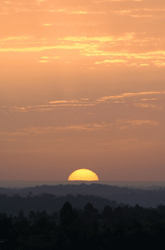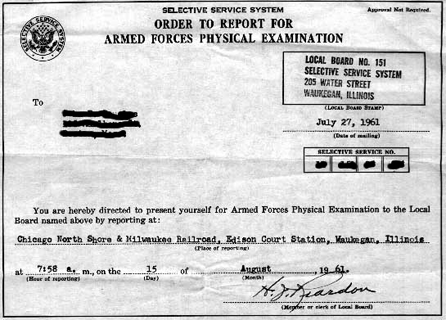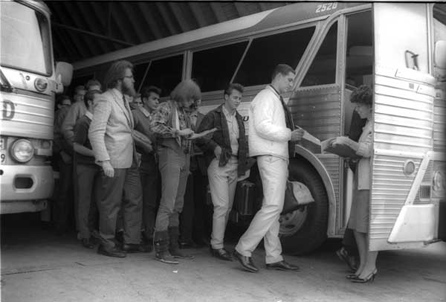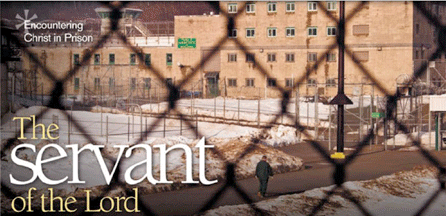Hot Town: Summer in the Slammer
 If you were a teenager in the sixties, you no doubt remember at least the first few lines of the hit song, "Summer in the City." It was recorded by "The Lovin' Spoonful," a fact that took me awhile to remember even as the lyrics screamed away on that inner stereo in my mind:“Hot town, summer in the city
Back of my neck getting dirty and gritty
Been down, isn’t it a pity
Doesn’t seem to be a shadow in the city
All around, people looking half dead
Walking on the sidewalk, hotter than a match head.”It was the summer of 1969 when "Summer in the City" hit the charts. Musical memory is a strange phenomenon, and one of the most accurate forms of memory. Our minds don't just remember familiar tunes and words so much as replay them. It's as though they're actually recorded on some special neuron that pushes "Play" when we recall a song.The cascade effect of memory is also strange. I set out to write about summer in prison - and I'll get to it if you bear with me - but then my title brought me to the summer of 1969 when that song by “The Lovin' Spoonful" emerged. My mind associates the song with an aura of negativity and discomfort.There was a lot going on in the summer of 1969. I was sixteen, and dreading my senior year in high school looming on the near horizon. Everyone dreaded senior year then. There was but one possible future awaiting most of us: a stint on a battlefield in Vietnam. There was no sense of patriotism attached to that fate. No one in 1969 had any delusion that some high purpose was served by the long, drawn out war in Vietnam. Too many of our friends went and never came back, and some who did come back were no longer the innocent friends we knew.I was spared having to worry too much about the draft, at least then. I was more than a year younger than the rest of my class, most of whom would turn 18 during senior year. I knew the draft lottery took only 18 to 20 year-olds, and I was 16 for all but the last month of my senior year.
If you were a teenager in the sixties, you no doubt remember at least the first few lines of the hit song, "Summer in the City." It was recorded by "The Lovin' Spoonful," a fact that took me awhile to remember even as the lyrics screamed away on that inner stereo in my mind:“Hot town, summer in the city
Back of my neck getting dirty and gritty
Been down, isn’t it a pity
Doesn’t seem to be a shadow in the city
All around, people looking half dead
Walking on the sidewalk, hotter than a match head.”It was the summer of 1969 when "Summer in the City" hit the charts. Musical memory is a strange phenomenon, and one of the most accurate forms of memory. Our minds don't just remember familiar tunes and words so much as replay them. It's as though they're actually recorded on some special neuron that pushes "Play" when we recall a song.The cascade effect of memory is also strange. I set out to write about summer in prison - and I'll get to it if you bear with me - but then my title brought me to the summer of 1969 when that song by “The Lovin' Spoonful" emerged. My mind associates the song with an aura of negativity and discomfort.There was a lot going on in the summer of 1969. I was sixteen, and dreading my senior year in high school looming on the near horizon. Everyone dreaded senior year then. There was but one possible future awaiting most of us: a stint on a battlefield in Vietnam. There was no sense of patriotism attached to that fate. No one in 1969 had any delusion that some high purpose was served by the long, drawn out war in Vietnam. Too many of our friends went and never came back, and some who did come back were no longer the innocent friends we knew.I was spared having to worry too much about the draft, at least then. I was more than a year younger than the rest of my class, most of whom would turn 18 during senior year. I knew the draft lottery took only 18 to 20 year-olds, and I was 16 for all but the last month of my senior year.


When I finally did register for the draft a year later, President Nixon had begun the process of withdrawal. I was number six in the draft lottery, and, willingly or not, I would surely have gone to war. But it wasn't meant to be. By the time I was 18, American forces were leaving Vietnam.The summer of 1969 had other worries and trials as well. Because of a tragedy in my family - which I will write about one of these days - I had to find a full time job at sixteen. I had one that I thought was secure. It was in a machine shop, but I was laid off just as that summer began. I took the only job that I could find, and it turned out to be the worst job of my life.I spent most of that summer in a lumber yard hauling telephone poles and 100-pound sand bags, and unloading railroad boxcars of lumber coming up from Georgia. The latter was by far the worst. I had to crawl atop the lumber among dead rats and snakes cooked in the superheated boxcars and start handing the lumber out. I spent several days a week unloading those boxcars. Olfactory memory is also strangely accurate. I can actually smell the penetrating odor of death trapped inside those boxcars. Being claustrophobic, each day was an ordeal. I learned that summer that courage did not mean being without fear. Courage is being afraid of something, but doing it anyway.I'm told few teenagers today would tolerate such a job, let alone endure it. Minimum wage then was $1.60 an hour. Life for a typical city teenager was a lot different then. My post, "The Day the Earth Stood Still" painted a vivid picture of the decade leading up to that summer.It's strange that I think often of the summer of 1969 even now. Sometimes I dream about being inside those boxcars. I had one of those dreams last night when I awoke in this steamy 7'x 12' cell. Prisoners here spend all of the dreary New Hampshire winter waiting for summer.

Thoughts of being outside in the ballfield are pretty enticing in the frigid dead of winter when we’re trapped all day inside crowded cellblocks. Then when the summer finally comes, days like today bring their own discomforts and deprivations.As I type this, it's 95 degrees at noon on Monday in Concord, NH. The prison library is closed today, so I have no work. I dread such days in prison because it means being stuck in my cell all day. It's expected to climb to 99 degrees this afternoon. There's not much in the way of joie de vivre in prison on a good day, but days like this will knock the spirit out the most optimistic of prisoners.Discomfort can become a crisis for some prisoners. The fact that we can't escape discomfort, and therefore have no control over it, just doesn't sit well with most men, and men in prison are not exactly models of forbearance. The cinder block building that houses 500 of the 1,500 prisoners here is assaulted by the sun all day. It really holds the heat so by night, when the cell doors close, we could bake cookies in here. Making it a bit worse, the row of cells where I have lived for years faces due west. That means seven hours of blazing sun through this cell's window in the summer months.The hermetically sealed window lets in lots of heat, but no air, so the cell just heats up all afternoon. We used to be able to cover the windows with a towel, but this year the powers-that-be forbid it. When it's time to sleep, it can be unbearably hot.People ask me often if the prison is air conditioned. Far from it. The prison canteen does a brisk business selling a small, 8-inch fan. It's an absolute necessity in this overcrowded space with little moving air. Each cell has only one outlet so if we want to heat water for coffee, we must unplug the fan. It's a constant game of musical plugs trying to keep a fan going.DOSTOYEVSKY’S DREADBut I have no complaints. I still have fixed in my mind the frustrations of the dead of winter when I stared out my cell window day after day at the bolted ballfield door (see "Field of Dreams"). I can bear the heat. Memories of a long winter of longing to be outside, and to walk alone, make the discomforts of summer seem trivial to me.I can endure the hot afternoons because on most of them I'm at work in the prison library. I live for the mornings when I can get to the ballfield and walk alone for three or four miles. It's my only chance for solitude, a luxury that most people take for granted until it's taken away. Dostoyevsky wrote of how much he craved solitude in prison:"Above all, I was unprepared for the utter devastation wrought by year upon year of never, ever - not for a single moment - being alone with myself."The ballfield is the sole place in this prison where I can walk and be relatively alone. Last summer there was this kid, James, who lived in another part of the prison. James was 20-something years old with chronic ADHD - Attention Deficit Hyperactivity Disorder - which seems to be an epidemic here. No matter where James was, he seemed to crave being somewhere else.In the mornings, I would go to the ballfield to start my first lap just to hear James calling my name as he bounded across the field to walk with me. I would just groan as the prospect of walking for an hour in solitude evaporated. My exasperation with James made me feel selfish, so I never had the heart to send him away. James would chatter incessantly as he struggled to keep up on the walking track, but he never actually ever said anything. Most people couldn't bear to be around James, so the daily task of enduring him fell to me.James was moved to another prison during the winter, but there's still no shortage of prisoners who join me in my walk around the track. I have found an easy way to guarantee at least some time alone.I get in a good four miles in the hour I have to walk the track a few mornings a week. Lots of prisoners - especially the younger ones - give up trying to keep up after a mile or so. It struck me one day that few of these guys have ever really had to walk anywhere.Today is Monday, and I waited all weekend to go walk in the ballfield. It's never open during the day on weekends. I would do any penance to go out there to walk today, and avoid spending the day in this boxcar of a cell slowly baking in the blazing sun.Then the dreaded rumor started. The ballfield is closed today because it's too hot. I wish I could invite whoever made that decision to stop by my cell about 5:00 this afternoon!But I'll not complain. I've endured more trying summers than this one, and besides, I just saw a welcomed sight: Clouds. Some really dark clouds are gathering to the west, and the sun isn't having its way. The rumor just changed. Now the ballfield won't be open because it may rain. Regardless, I really welcome those clouds. It means it might not creep much past 99 degrees in this cell if the clouds hold out long enough. I have a new appreciation for clouds.Oh terrific! Now "The Lovin's Spoonful" has been replaced on my mental eight-track by Judy Collins and her shrill "I've looked at clouds from both sides now!"I'd better print this and mail it to Charlene before "The Mamas and the Papas" show up singing "Monday, Monday."
